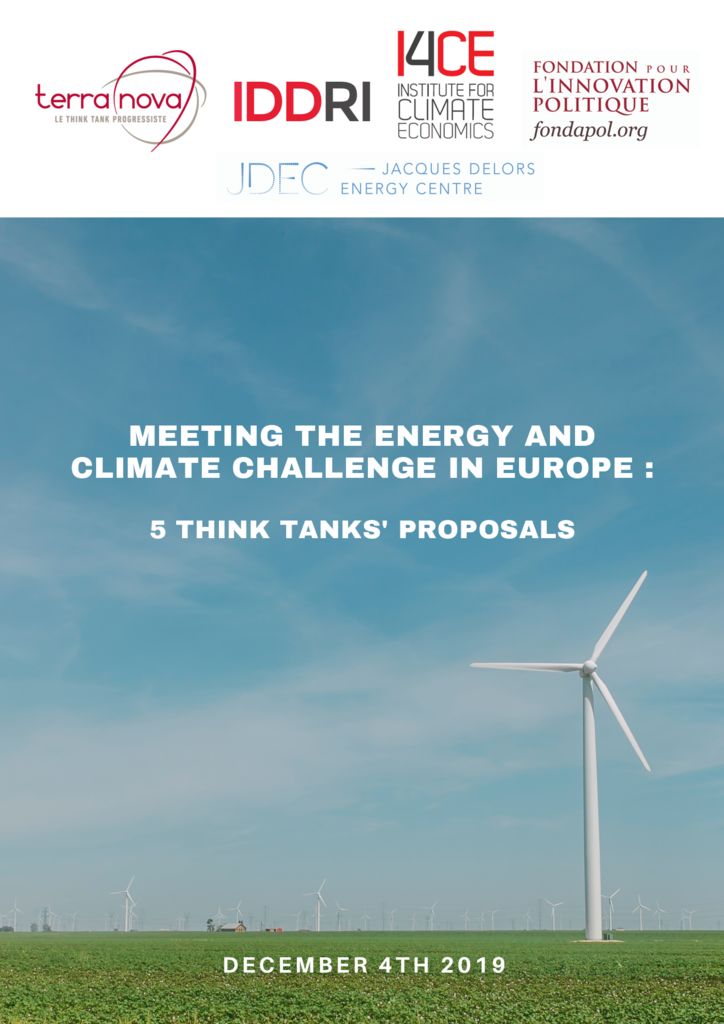The proposals of 5 think tanks to meet the energy and climate challenge in Europe
Authors: Nicolas Berghmans (IDDRI), Antoine Guillou (Terra Nova), Thomas Pellerin-Carlin (Jacques Delors Institute), Emmanuel Tuchscherer (Fondapol), Charlotte Vailles (I4CE) and Ian Cochran (I4CE)
Almost four years after the signing of the Paris Agreement, the European Union (EU) must quickly raise its ambition in the fight against climate change if it wants to maintain its leadership on climate change and encourage other countries in the world to do the same. To limit global warming to 1.5 or 2°C, much remains to be done at EU level.
With the European elections on 26 May 2019, five French and European think tanks joined forces to make proposals and thus feed the work programme of the future Parliament and the future Commission.
Among these proposals, I4CE, the Institute for Climate Economics, calls on the European Union to :
- Adopt new long-term emission reduction targets for 2040 and 2050 and revise its targets for 2030. This revision should lead in particular to an increase in the rate of reduction of European carbon market – the EU Emission Trading System (EU ETS) during the review of this market scheduled for 2023.
- Provide the EU with a corridor of social carbon values, including the social values of each Member State. The systematic use of a social value of carbon in socio-economic assessments of public policy instruments and public investments would allow ambitious and effective climate action.
- Neutralise the counter-productive effect of interactions between the EU’s different energy-climate policies. Such interactions now exist between the EU ETS on the one hand and European renewable energy policies or national coal exit policies on the other. These policies significantly reduce emissions from the electricity sector, which is a good thing but also lowers the carbon price in the EU ETS and thus the incentive for other sectors to decarbonise. Provisions should be introduced to assess these interactions and cancel enough allowances on the carbon market.
- Putting EU financial institutions and financial regulation at the service of the climate. The EU should give its financial institutions, first and foremost the European Investment Bank, a formal mandate to increase the share of their climate financing and not to finance infrastructure projects that will condemn the EU to carbon emissions for several decades. The EU should also strengthen its financial regulation, in line with its action plan for sustainable finance, and in particular strengthen climate transparency requirements for all financial assets and not just ‘green’ assets.
- Set up a body to monitor progress in financing the transition. This could involve including in Member States’ energy-climate plans an analysis of investment and financing needs for the climate, and setting up a Climate Finance Observatory. This Observatory, provided for in the European Sustainable Finance Action Plan, should monitor both the volumes of financial assets and the volumes of investments that are favourable and unfavourable to the climate.

